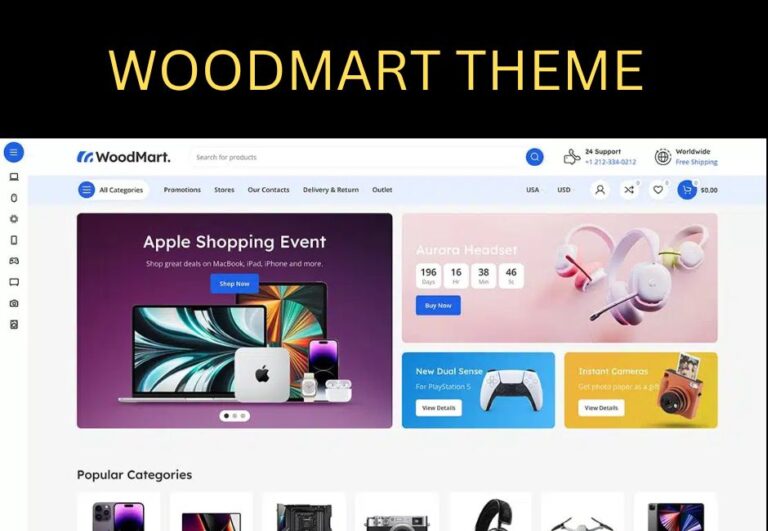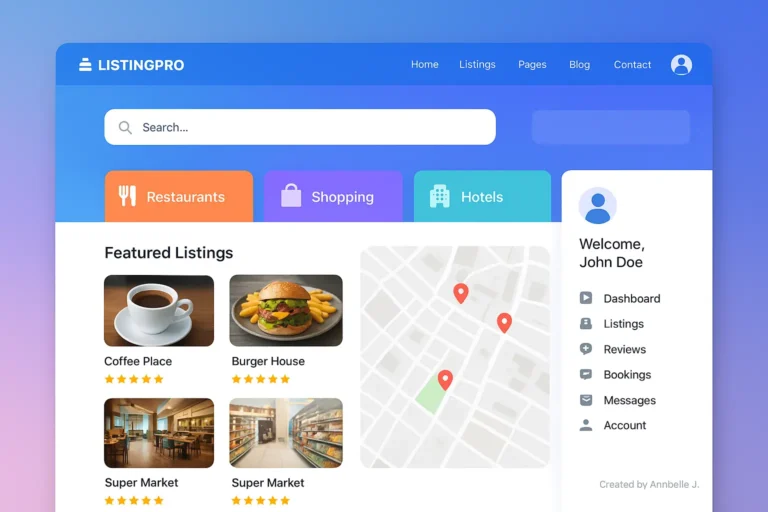In the fast-changing digital world of 2025, the rivalry between WordPress website builders is getting worse. Designers have liked and used Elementor for a long time. It is a drag-and-drop builder. Gutenberg, the built-in WordPress block editor, has become a full-fledged site design tool, on the other hand.
If you’re launching a new website or rebuilding an old one, knowing which builder is appropriate for your purposes could make a huge impact. We at Preet Web Vision know how to make WordPress websites that look good, work well with search engines, and get visitors to do what you want them to do. And in this detailed guide, we’ll show you a full comparison between Elementor and Gutenberg to help you make a smart choice in 2025.
1. Introduction.
More than 43% of all websites in the world are powered by WordPress. With its many page builders, users have more freedom than ever before. Elementor and Gutenberg are the two most popular tools in 2025. They both have their own strengths and weaknesses, so it’s important to choose the right one for your project.
Our development team at Preet Web Vision works a lot with both builders. We’ll look at each tool in this blog through the lens of important factors to assist you make a smart choice.
2. What is Elementor?
Elementor is a WordPress plugin that lets you build pages by dragging and dropping them. It lets people make websites that are exactly the way they want them without having to write any code. Elementor has been the most popular builder for professional designers since it was out in 2016.
Elementor’s main features in 2025:
- More control over Flexbox and Grid layout
- Full Theme Builder, which includes the header, footer, archive, and more
- Adding Custom Code and Scripts
- Design Ideas Based on AI
- Integrating WooCommerce and LMS
- Dynamic content with configurable fields (ACF, PODS, Toolset)
Elementor is great for freelancers, agencies, and organisations that want to have a lot of control over the design using a visual interface.
3. What is the Gutenberg?
WordPress 5.0 added Gutenberg, which is also called the WordPress Block Editor. By 2025, it had come a long way. It is now a full-site editing (FSE) application that lets you modify every area of your website with blocks.
Important things about Gutenberg in 2025:
- Editing the whole site (header, footer, templates)
- Patterns for blocks and blocks that can be used again
- Better drag-and-drop user interface
- Optimising performance for native apps
- Working with WordPress Core and APIs
- Custom blocks make it easy to add new features.
Gutenberg is fast, works with WordPress right out of the box, and is built to last.
4. Ease of Use Comparison
Elementor:
- Easy to use, using a drag-and-drop interface
- WYSIWYG (What You See Is What You Get) lets you edit live
- Most designs don’t need any coding.
Gutenberg:
- Easier and quicker for basic content
- Better UI, but still missing advanced visual cues
- There is a little learning curve for managing FSE layouts.
Evaluation:
Elementor is the best choice for novices and visual designers. Gutenberg is great for workflows that start with content.
5. Customization and flexibility in design
Elementor:
- A huge library of widgets
- Settings for global design
- Controls for responsive design that are fine-tuned
- Advanced animations and effects that move
Gutenberg:
- Block patterns and styles make customisation easier
- Full-site editing gives you control over the layout.
- Still not as good as Elementor’s detailed options
Evaluation:
Elementor is more flexible and has more design options, especially for complicated layouts.
6. Speed and Performance
Elementor:
- By default, it has more CSS and JS payloads.
- New optimization tools will be available in 2025, such as Asset Loading and Performance Tuner.
Gutenberg:
- Light and built-in
- Fewer dependencies mean quicker load times.
- Output of cleaner code
Evaluation:
The clear winner for speed and performance is Gutenberg.
7. Compatibility with themes and plugins
Elementor:
- Works with practically all new WordPress themes
- Astra, Hello, and OceanWP all have deep interconnections.
Gutenberg:
- Works with all block-based themes without any problems
- Better support with third-party plugins like Kadence and Spectra
Evaluation:
It’s a tie. Both tools work with a lot of different things, but Gutenberg is better because it has native core integration.
8. SEO Features
Elementor:
- Built-in SEO controls
- Works with all of the most popular SEO plugins, like Rank Math and Yoast.
- Schema plugins help with structured data.
Gutenberg:
- A clean code structure is best for SEO
- Support for AMP natively
- Improved core web vitals
Evaluation:
Gutenberg is better for technical SEO, but Elementor gives marketers more control.
9. Developer-Friendliness
Elementor:
- Custom hooks, widgets, and templates
- SDK for theme building and developer API
- Built-in options for custom CSS and JS
Gutenberg:
- Built on React.js and completely open source
- Simple to add custom blocks to
- More appropriate for advanced development environments
Evaluation:
Developers prefer Gutenberg for more control and customisation. Elementor is better for designers that want to make prototypes quickly.
10. Support for the ecosystem and community
Elementor:
- A large number of users around the world and a lot of documentation
- Events and lessons in the community
- Add-ons ecosystem (Crocoblock, Essential Addons, etc.)
Gutenberg:
- Supported by WordPress Core
- Ecosystem of growing blocks
- Part of the workflows at WP.org
Evaluation:
Elementor has a bigger ecosystem of third-party tools. Gutenberg is quickly getting formal backing.
11. Cost Comparison in 2025
Elementor:
- There is a free version available
- Pro plans cost $59 a year for one site.
- Plans for agencies: $199 or more per year
Gutenberg:
- Free and open source for everyone
- No need to pay for a subscription
- Add-ons cost extra (such Kadence Blocks, Stackable, etc.).
Evaluation:
The verdict is that Gutenberg is a good value. You have to pay for Elementor’s premium features.
12. Use Case Scenarios
| Scenario | Recommended Builder |
|---|---|
| Quick Blog Website | Gutenberg |
| Advanced Landing Pages | Elementor |
| Enterprise Projects | Gutenberg + Custom Dev |
| E-commerce with WooCommerce | Elementor |
| Portfolio Websites | Elementor |
| SEO-Optimized Content Sites | Gutenberg |
| Multilingual Sites | Elementor |
| Budget Projects | Gutenberg |
13. Judgement: Which Page Builder Will Emerge as the Winner in 2025?
It all depends on what you require. Here’s a basic summary:
| Category | Winner |
|---|---|
| Ease of Use | Elementor |
| Design Flexibility | Elementor |
| Speed & Performance | Gutenberg |
| SEO | Gutenberg |
| Cost | Gutenberg |
| Community Support | Elementor |
| Developer Experience | Gutenberg |
- 🔧 For sites that need a lot of customization and speed, Gutenberg is the best.
- 🎨 Elementor is the best tool for creative control and quick prototyping.
14. Last Thoughts and Call to Action
Elementor and Gutenberg are not rivals in 2025; they are instruments that serve various objectives. Choosing the proper one requires making sure that your website’s aims fit with your technical and artistic needs.
Still not sure which builder is ideal for your business?
Partner with Preet Web Vision, the best web design company, to make WordPress websites that are fast, scalable, and beautiful.
Email: hello@preetwebvision.com
Phone: +63-9633112000
Website: https://preetwebvision.com
With the correct technology from the specialists at Preet Web Vision, we can help you improve your digital brand presence.




